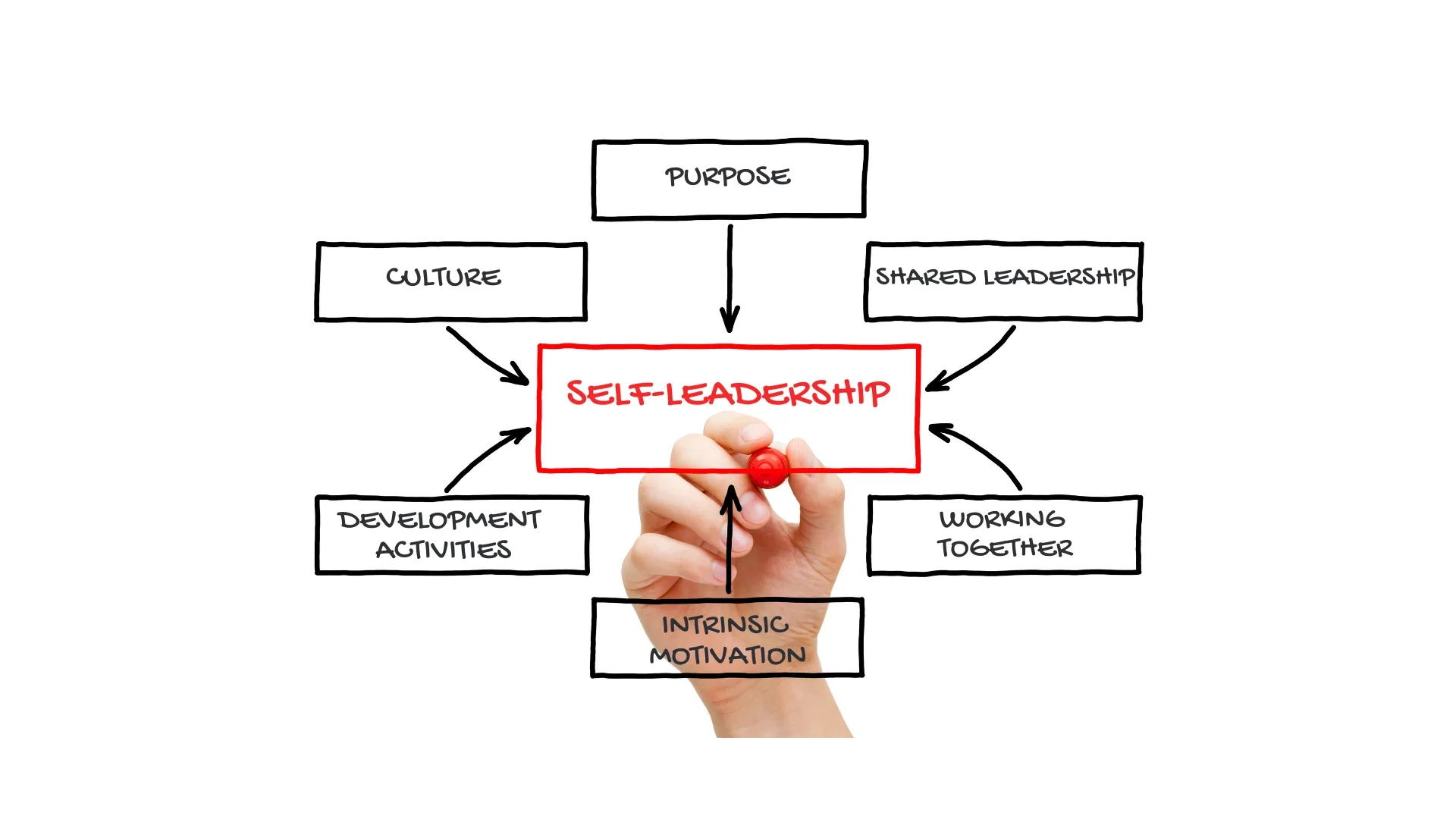Self-leadership as a concept has been around for a few decades, but as the nature of work and leadership continuously evolve, so should the concept of self-leadership. What do we actually mean when we talk about self-leadership today? What are its implications, and furthermore, how can these skills be developed in a work context?
But first, let’s start with the terminology. In literature one can discern between two sets of skills that at first glance seem very similar: self-management and self-leadership. When we take a closer look, however, we notice that the focus of these two is somewhat different. Self-management describes the skills used to control the HOW of work. A self-managing person has acquired the skills of controlling and influencing their own way of working and getting things done. These skills are often more extrinsically motivated, by eg. pay and other external rewards.
Self-leadership on the other hand is considered more connected to the WHAT and WHY of work. A person with a high level of self-leadership is intrinsically motivated by the work itself, finding it inspiring and rewarding to contribute to and develop the shared goals of the organisation. Taking such leadership in the organisation is deeply motivating and studies show that increased self-leadership corresponds with improved work performance, greater job satisfaction and greater career success for individuals. A higher level of self-leadership has also been connected to reduced stress and anxiety at work as well as less absence from work.

Self-leadership is more prominent in organisations and industries where the job itself is naturally rewarding. It is quite unsurprising that a person who finds their job interesting and motivating will be more likely to lead themselves towards better results. However, it is noteworthy that this aspect also can be affected through leadership support. A task that does not feel motivating can be given deeper meaning by e.g. personally exploring the deeper implications of the work/task for the end user. The sense of purpose and motivation are strongly connected to self-leadership.
Another critical antecedent of self-leadership is the overall leadership culture in the organisation. Studies show that leadership that encourages others to lead themselves, and that shares the leadership function/role across multiple individuals, is necessary for achieving the highest levels of self-leadership. Shared leadership facilitates self-leadership and brings shared direction to each individual’s efforts, while simultaneously self-leadership is necessary for shared leadership to improve the collective performance.
In conclusion, it is fair to say that self-leadership skills are of fundamental importance in the modern organisation and a prerequisite for both productivity, job satisfaction and a sense of wellbeing at work. At TalentMiles, we also like to see the individual as part of a team and a larger network. Therefore not even self-leadership is only about learning to lead oneself, but it is in equal measures a method to develop the way your team works together, developing and communicating a clear shared vision and being able and willing to carry part of the leadership role in the organisation.
TalentMiles Self-leadership programme
The TalentMiles Self-Leadership programme is an action-based, fully virtual program that supports the development of self-leadership skills in the flow of daily work. The programme is mainly targeted to entry and mid level managers, but by doing the learning activities the participants will also involve their team and together develop their self-leadership skills.
We see that one-time training programs for either teams or individuals will almost always fail to produce any long-term benefits. Instead, taking a growth-mindset approach to development and committing to the cumulative effect of small but regular development actions will result in success for both the individual and the organisation.
Five main benefits of the TalentMiles Self-Leadership programme:
-
- Helps participants take an active role in developing themselves and their team
- Participants learn to better manage change in their work environment
- Strengthens self-awareness and creates more resilience and learning capacity in the whole organisation
- Engages and empowers participants to actively contribute to and lead towards the shared goals of the organisation
- Strengthens and shakes up internal networks and helps people connect and cooperate more effectively within the organisation
Read more about our Self-Leadership programme here.
______________
Greg L. Stewart, Stephen H. Courtright, Charles C. Manz, Self-Leadership: A Multilevel Review, Journal of Management, Vol. 37 No. 1, January 2011 185-222
Greg L. Stewart, Stephen H. Courtright, Charles C. Manz, Self-Leadership: A Paradoxical Core of Organizational Behavior, Annual Review of Organizational Psychology and Organizational Behavior, 2019.6:47-67

